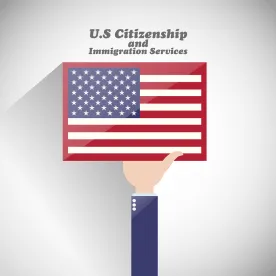On August 3, 2020, USCIS published a final rule that will significantly change forms and increase fees for certain immigration and naturalization benefit requests effective October 2, 2020. Any application, petition, or request postmarked on or after October 2, 2020, must include the new forms and fees detailed in the final rule.
This of course assumes that neither of the two lawsuits that have been filed against the final USCIS fee rule, one in the U.S. District Court for the Northern District of California and the other in the U.S. District Court for the District of Columbia will not halt the implementation of these changes. A preliminary injunction hearing for the lawsuit filed in the U.S. District Court for the Northern District of California has been scheduled for September 25, and it is anticipated that a decision on the preliminary injunction will be rendered before October 2. If the implementation of the fee rule is enjoined, it is likely that USCIS will continue to use the current fee schedule and accept current versions of all forms.
Some noteworthy fee changes in the final rule include the following:
-
Adjustment of Status Applicants: Children under the age of 14 filing for adjustment of status with their parent will no longer be eligible to file Form I-485 with a reduced fee. A standard Form I-485 fee of $1,130 will apply to all applicants. Adjustment applicants will also be required to pay separate fees for Form I-765, Application for Employment Authorization ($550) and Form I-131, Application for Travel Document ($590) filed in connection with adjustment of status applications. This change more than doubles the cost of filing an adjustment of status application package to $2,270;
-
Naturalization Applicants: The fee for Form N-400, Application for Naturalization, will increase from $640 to $1,170 for paper filings – an 83% increase; and
-
Biometrics Fee: With some exceptions, USCIS has eliminated the separate biometrics service fee of $85 for many application types in the final rule and instead incorporated the cost into the filing for the benefit requested. For example, the biometrics fee will now be included as part of the adjustment of status filing fee for Form I-485.
Forms being changed include the following:
-
Petition for Nonimmigrant Worker: H-1B or H-1B1 Classifications – new Form I-129H1 with a new fee of $555;
-
Petition for Nonimmigrant Worker: L Classification – new Form I-129L with a new fee of $805;
-
Petition for Nonimmigrant Worker: O Classification – new Form I-129O with a new fee of $705;
-
Application for Nonimmigrant Worker: E and TN Classification – new Form I-129E&TN with a new fee of $695; and
-
Application for Employment Authorization – new Form I-765 with a new fee of $550.
Again, USCIS will require these new forms for petitions and applications postmarked on or after October 2, 2020.
It is worth noting that on July 31, 2020, USCIS announced it would post these new and revised forms online 30 days before the new rule goes into effect. However, the new versions of most forms have only recently been posted on the USCIS website in preview mode which USCIS does not accept.
Important Change to Premium Processing Time Frame
The USCIS rule did not increase the $1,440 premium processing fee, but it did increase the premium processing time frame from 15 calendar days to 15 business days. For purposes of calculating the 15-day premium processing clock, USCIS will calculate business days as those days the federal government is open for business. Weekends, federally observed holidays, or the days on which federal government offices are closed (such as closures caused by inclement weather or national emergencies) do not count as business days.
That means in most cases premium processing could take three weeks rather than two weeks.
Expansion of Secure Identity Documents Delivery Policies and Procedures
USCIS has been utilizing the U.S. Postal Service’s (USPS) Signature Confirmation Restricted Delivery Service (SCRD) on a limited basis since April 2018 to re-mail secured documents that have been returned to USCIS as undeliverable. The fee rule permits USCIS to use SCRD for delivery of all USCIS secure identification documents (such as Permanent Resident Cards and Employment Authorization Documents) as of October 2, 2020 to the applicant or self-petitioner.
When using SCRD, applicants will need to present identification and sign for their document upon delivery. Applicants can also opt to designate an agent to sign on their behalf by completing the appropriate Postal Service forms and sign up to receive delivery status notifications. There will also be an option via the Postal Service’s website to arrange for pickup at a post office.
Some Examples of the Changes
| Benefit Requested | Current Form | Current Fee | New Form | New Fee (if applicable) |
|---|---|---|---|---|
| E-1, E-2 | I-129 I-129E (Supplement) |
$460 | I-129ETN | $460 |
| H-1B, H-1B1 | I-129 I-129H (Supplement) I-129HDC I-129 FT (Supplement) (for H-1B1) |
$460 | I-129H1 | $555 |
| H-3 | I-129 I-129 Attach I-129H (Supplement) |
$460 | I-129MISC I-129MISC Attach |
$460 |
| L-1 | I-129 I-129L (Supplement) |
$460 | I-129L-New | $805 |
| O-1 | I-129 | $460 | I-129O | $705 |
| TN | I-129 I-129FT (Supplement) |
$460 | I-129ETN | $460 |
ADJUSTMENT OF STATUS FEE CHANGE CHART
The most drastic change appears to be to the adjustment of status process. To demonstrate the impact of the fee change, let’s look at an example of a family of four (4) filing adjustment of status applications (AOS) before and after this change.
Each applicant will need a separate Advance Parole Application:
| Current Fee | New Fee |
|---|---|
|
2 Parents: $1140 x 2 = $2280 |
Each applicant: $1130 x 4 = $4520 |
|
2 children under 14 years old: $750 x 2 = $1500 |
Each applicant will need a separate Employment Authorization Document Application: $550 x 4 = $2200 |
|
$590 x 4 = $2360 |
|
|
TOTAL FEE for FAMILY: |
TOTAL FEE for FAMILY: |
|
$2280 + $1500 = $3,780 |
$4520 + $2200 + $2360 = $9,080 |
So we see that for a family of four with two of the children under the age of 14 the filing fees more than double. The larger the family, the greater the disparity!
Conclusion
As you can see from the above, these changes have a significant impact on a multitude of benefits and adds to the numerous changes to Immigration & Nationality law we have already seen in the United States over the last several years. Because of the rapidly changing Immigration climate, we recommend contacting the Immigration & Nationality Practice Group at Proskauer regularly to ensure that your organization remains abreast of changes that may impact your professionals.






 />i
/>i
